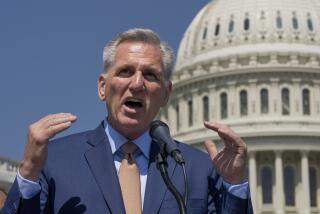As coronavirus drives the world toward zero rates, we’re all becoming Japan

There aren’t many precedents for the trauma that financial markets have suffered last week, as the coronavirus crisis drove U.S. stocks into a bear market and briefly sent yields on every Treasury bond crashing below 1%.
But there may be a precedent for the hole that policy makers find themselves in when the dust has settled. Just not an American one. The developed world’s last great holdout looks like it’s joining the Japanification club.
The U.S. Federal Reserve announced late Sunday it would slash interest rates to near zero and buy at least $700 billion of Treasury and mortgage-backed securities.
But central-bank interventions so far haven’t been able to turn things around like they used to. The plea arising from markets is for governments to step into the breach and use their spending power to shore up economies — in the short run. The Japanese lesson suggests that they might have to do it for quite a while.
“We’re essentially at the Japanese place,” former Treasury Secretary Larry Summers told Bloomberg Television on Thursday. “That’s a place that’s very hard to get out of.”
Conditions that don’t feature much in economics textbooks have been the norm in Japan for decades. Benchmark interest rates have been near zero or below, yet households and businesses still don’t want to borrow, leaving traditional monetary policy without traction. So the government steps in to finance what little growth there is with deficit spending.
Since 2008, most developed economies have looked at least a bit like that, and the growing damage inflicted by the coronavirus may be speeding up the convergence. Slow-growing Europe has already gotten used to negative borrowing costs. While the U.S. isn’t there yet, trend-lines are pointing in that direction.
Even when the central banks do act, it may not help much. When the Federal Reserve eased policy in an emergency move last week, it did little to reassure markets. Even Fed Chair Jerome Powell conceded that rate cuts can’t fix supply chains thrown into chaos by the coronavirus epidemic.
Central banks have other options, like forward guidance to assure borrowers that now’s the time to take out credit, or the kind of lending programs for companies and support for banks that formed part of the European Central Bank’s crisis package announced on Thursday.
But it’s becoming clear that monetary authorities don’t have the policy room they did during the financial crisis, leaving the onus on governments.
“Central banks have lost the plot,” said Alicia Garcia Herrero, chief Asia-Pacific economist at Natixis and a former European Central Bank staffer. “Somebody else needs to step up.”
Japanese governments have been stepping up since the late 1990s, amassing a mountain of debt along the way. The virus threat is spurring yet more fiscal stimulus there, and across the globe.
If deflationary conditions settle in, many economists say the world is likely to see more dramatic steps by the politicians in charge of budgets — perhaps teaming up with their central banks. The biggest oil crash in a generation, coupled with longer-term problems such as aging populations, support such expectations.
“From a big picture perspective,” Morgan Stanley economists wrote in a note Thursday, the virus shock “has once again brought the structural issues of debt, demographics and disinflation to the fore.”
Those are the challenges Japan has been grappling with for decades. They’re less acute in the U.S., which has a growing population and hasn’t seen headline inflation drop below zero since 2009. Still, producer prices tumbled last month in what may be an early sign of the virus’ effect.
In this deflationary environment, business and households have been reluctant to borrow, even after central banks slashed the cost of doing so. Governments could and did — and that’s why the dividing line between monetary and fiscal policy is getting blurred.
“Think of things like helicopter drops” — central banks printing cash and delivering it straight to the public — “think of things like fiscal deficits that could be partially directly monetized by central banks,” David Mann, chief economist for Standard Chartered Plc in Singapore, said on Bloomberg Television. And this new toolkit will be needed “not just during this shock, but during the 2020s.”
More to Read
Inside the business of entertainment
The Wide Shot brings you news, analysis and insights on everything from streaming wars to production — and what it all means for the future.
You may occasionally receive promotional content from the Los Angeles Times.










